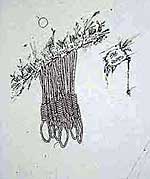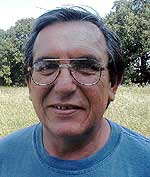By Mark Steil and Tim Post
Minnesota Public Radio
September 26, 2002
| |
|
|
|
||
Time has not erased the divisions of war for the Dakota. Ed Red Owl says it's a nation split geographically and philosophically since 1862. Consider what some say is the modern day economic savior of Indians - casino gambling.
Before 1862, resources were shared among the Dakota. But today, Dakota bands rich on gaming profits refuse to share with those living in poverty. Red Owl says the Dakota are so divided, it's everyone for themselves.
"At times there's instances of generosity of a band for some of their western cousins in the Dakotas, or Montana or Nebraska," Red Owl says. "But again, it's only a token. There isn't an overwhelming sense of responsibility as it once existed."
Red Owl says the feeling also extends down to individuals. He says many Dakota have withdrawn from the world outside their home or reservation. If they try to reach out, they often face discrimination.
There is still evidence everywhere that the winners of history are in charge. Angela Cavendar Wilson points to one example - how the state honors Alexander Ramsey, Minnesota's governor in 1862.
| |
|
|
|
||
"In Redwood Falls, which is adjacent to the Lower Sioux community, there's a Ramsey Muncipal Park. Can you imagine being a resident or member of the Lower Sioux community, and every day being reminded that Minnesota celebrates the man who called for the extermination of our people?" Wilson asks.
But there are some Dakota who call this whining. Lee Taylor is a former chairman of the Flandreau Dakota, now working for the Minnesota Historical Society.
"We can't forget what happened in the past. We've got to learn from history, but we've got to move on. We have to move away from this ... and learn how to get along together," Taylor says.
That can start with something as simple as recognizing that each life matters. In 1862, 38 Dakota were executed in Mankato. Reporters wrote down their final words. They chanted a simple call for recognition, "I am here." It's a cry that still echoes today.
More from MPR

